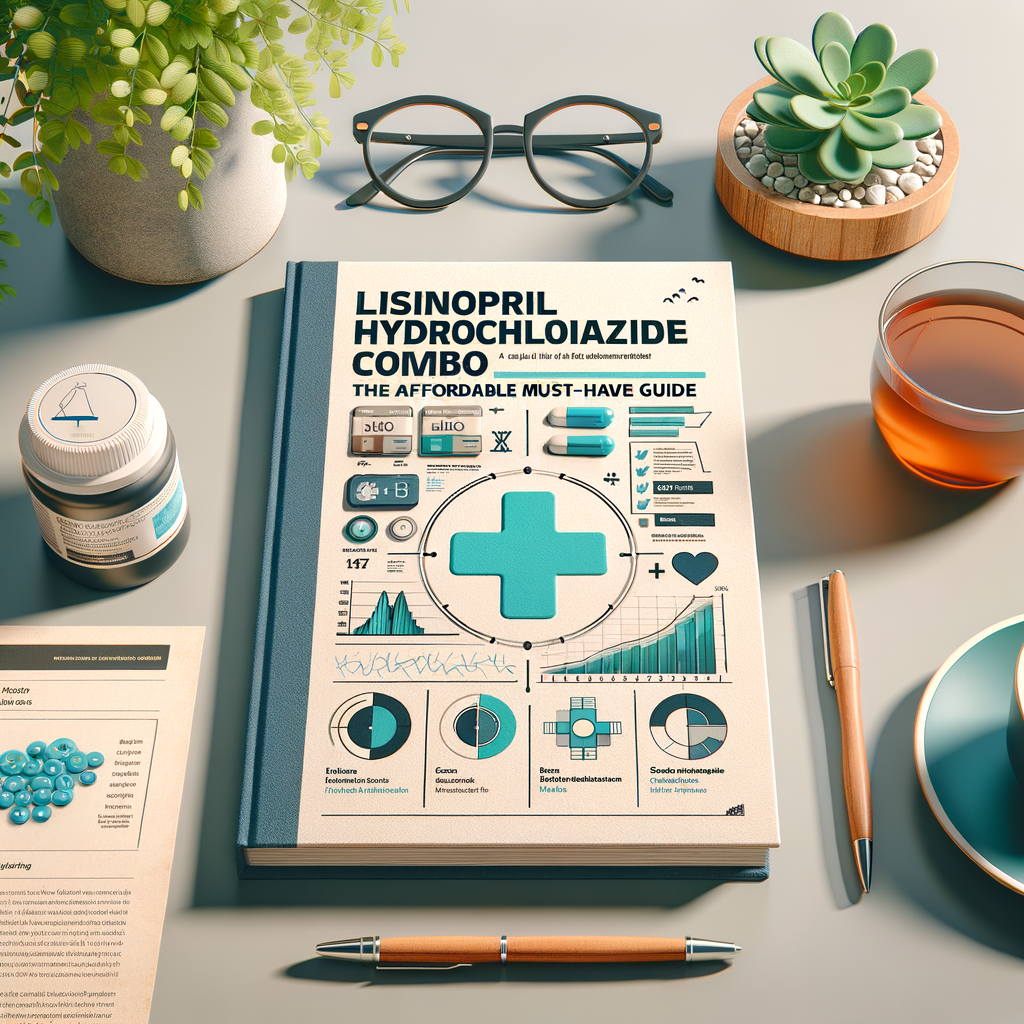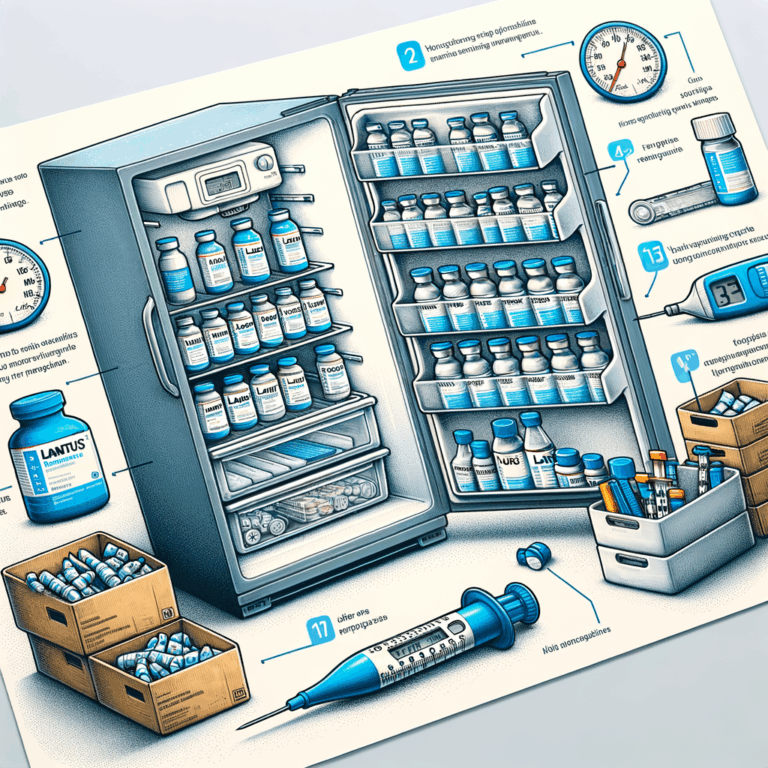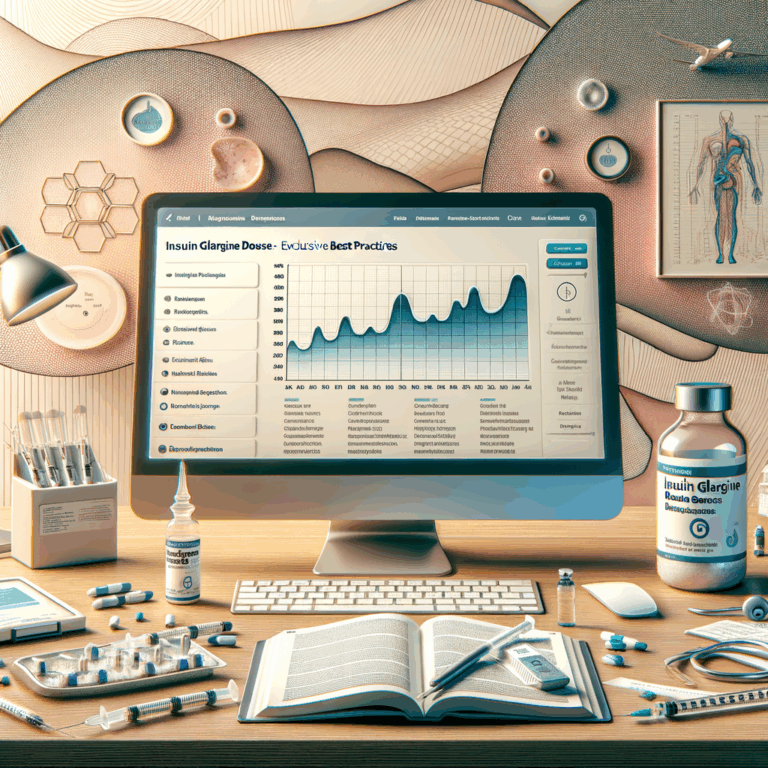
- Introduction: Why the Lisinopril Hydrochlorothiazide Combo Matters
- What Is Lisinopril Hydrochlorothiazide Combo?
- Components and Mechanism
- Common Brand and Generic Names
- Why Doctors Prescribe the Combo
- Clinical Benefits
- Who Is a Good Candidate?
- How Lisinopril and Hydrochlorothiazide Work Together
- Lisinopril: The Vessel Relaxer
- Hydrochlorothiazide: The Fluid Remover
- Recommended Dosing and Administration
- Typical Dose Ranges
- How to Take the Medication
- Possible Side Effects and How to Manage Them
- Common Side Effects
- Serious Side Effects and Warnings
- Drug Interactions and Safety Precautions
- Common Interactions
- Precautions by Condition
- Monitoring While Taking Lisinopril Hydrochlorothiazide Combo
- What Tests You Need
- Home Monitoring Tips
- Affordability: How to Save Money
- Choose Generics
- Use Insurance and Discount Programs
- Comparing Prices: Sample Cost Table
- Buying Online: Pros and Cons
- Advantages
- Risks and Red Flags
- Lifestyle Tips to Boost Effectiveness
- Diet and Exercise
- Alcohol, Smoking, and Weight
- Special Populations: Pregnancy, Kids, and Elderly
- Pregnancy and Breastfeeding
- Children and Adolescents
- Elderly Patients
- Switching from Separate Pills to the Combo
- When to Switch
- How to Switch Safely
- Tips for Better Adherence
- Simple Strategies
- When to Talk to Your Doctor
- Common Myths vs. Facts
- Myth: Combo Pills Are Weaker Than Separate Pills
- Myth: You Can Stop Once Your Blood Pressure Drops
- Practical Pharmacy and Prescription Advice
- Choosing a Pharmacy
- Dealing with Prior Authorizations
- Alternatives and When to Consider Them
- Other Combination Options
- When to Switch Classes
- Real-World Patient Tips and Experiences
- Summary: Key Takeaways
- Frequently Asked Questions (FAQs)
- 1. Can I drink alcohol while taking the Lisinopril Hydrochlorothiazide Combo?
- 2. How long does it take for the combo to start working?
- 3. Can this medication cause erectile dysfunction?
- 4. Is the generic version just as safe as the brand-name pill?
- 5. How should I store this medication?
- 6. What happens if I take more than the prescribed dose?
- 7. Can I stop taking it once my blood pressure is controlled?
- 8. Are there dietary restrictions I should follow?
- 9. Can the combo affect lab test results?
- 10. How do I travel with this medication internationally?
- References
Introduction: Why the Lisinopril Hydrochlorothiazide Combo Matters
Many people need more than one medication to control high blood pressure. Lisinopril Hydrochlorothiazide Combo pairs two proven drugs into a single pill. As a result, patients often find it easier to manage their treatment. Moreover, the combo lowers blood pressure more effectively than either drug alone.
This guide focuses on affordability and practical advice. You will learn how the combo works, its benefits, dosing basics, side effects, cost-saving tips, and how to get the best value. Read on for clear, actionable information you can use today.
What Is Lisinopril Hydrochlorothiazide Combo?
Components and Mechanism
The combination contains lisinopril and hydrochlorothiazide. Lisinopril is an ACE inhibitor. It relaxes blood vessels by blocking the production of angiotensin II. Hydrochlorothiazide is a thiazide diuretic. It helps the kidneys remove excess salt and water.
Together, they reduce blood volume and widen blood vessels. This dual action lowers blood pressure more effectively. Doctors often prescribe the combo when a single drug does not achieve targets.
Common Brand and Generic Names
Many companies manufacture this combination. You will find it under brand names and generics. Common brand versions include Prinzide and Zestoretic. Yet the generic “lisinopril hydrochlorothiazide” is widely available and cheaper. Generic versions contain the same active ingredients at lower cost.
Why Doctors Prescribe the Combo
Clinical Benefits
Combining drugs targets different pathways that raise blood pressure. Therefore, the combo often produces a stronger and quicker response. For many patients, a single pill improves adherence. This benefit translates into better long-term control.
Doctors also prefer the combo for patients with coexisting conditions. For example, those with mild fluid retention or those who did not respond to ACE inhibitors alone may benefit. The combo suits a wide range of adults with essential hypertension.
Who Is a Good Candidate?
Adults with primary hypertension often qualify. Patients already taking lisinopril or hydrochlorothiazide separately might switch to the combo. However, the combo may not suit people with kidney problems, certain potassium imbalances, or a history of angioedema. Pregnant women and breastfeeding mothers should avoid it.
Doctors will review your medical history before prescribing. They will also consider other medications you take. Always follow professional advice when switching or starting treatment.
How Lisinopril and Hydrochlorothiazide Work Together
Lisinopril: The Vessel Relaxer
Lisinopril blocks an enzyme called ACE. Consequently, angiotensin II levels drop. Blood vessels relax, which reduces resistance. As a result, the heart needs less effort to pump blood. This effect helps protect the heart and kidneys over time.
Hydrochlorothiazide: The Fluid Remover
Hydrochlorothiazide increases urine output. It reduces blood volume via sodium and water loss. Therefore, the heart faces less pressure. The diuretic also enhances the blood pressure-lowering effect of lisinopril. In short, the duo combines vessel relaxation and volume control.
Recommended Dosing and Administration
Typical Dose Ranges
Manufacturers commonly offer several dosage strengths. Typical combos include:
– 10 mg lisinopril / 12.5 mg hydrochlorothiazide
– 20 mg lisinopril / 12.5 mg hydrochlorothiazide
– 20 mg lisinopril / 25 mg hydrochlorothiazide
Doctors tailor dose to a patient’s blood pressure and response. They often start with a lower dose. Then they adjust based on blood pressure readings and side effects.
How to Take the Medication
Take the pill orally once daily, at the same time each day. Many patients take it in the morning to reduce nighttime urination. Swallow the tablet whole with water. Do not crush or chew extended-release forms.
If you miss a dose, take it when you remember. However, skip it if the next dose is near. Avoid doubling doses to make up for a missed one.
Possible Side Effects and How to Manage Them
Common Side Effects
Many people tolerate the combo well. Yet some side effects appear more often. These include:
– Dizziness, especially when standing
– Cough (linked to ACE inhibitors)
– Increased urination
– Light-headedness or fainting
Usually, these effects lessen as the body adjusts. Nevertheless, contact your doctor if side effects persist.
Serious Side Effects and Warnings
Some effects require immediate attention. Seek emergency care for any of the following:
– Swelling of the face, lips, throat, or tongue (angioedema)
– Severe dizziness or fainting
– Signs of kidney problems, such as reduced urine output
– High potassium signs like muscle weakness or irregular heartbeat
Also, avoid use during pregnancy. The combination can harm a fetus. Inform your doctor right away if you become pregnant.
Drug Interactions and Safety Precautions
Common Interactions
Several drug classes interact with the combo. These include:
– Potassium supplements or potassium-sparing diuretics
– NSAIDs like ibuprofen
– Certain blood pressure meds, especially ARBs or other ACE inhibitors
– Lithium, which may increase toxicity risk
Always share your full medication list with your prescriber. This includes vitamins and herbal supplements.
Precautions by Condition
People with kidney disease need close monitoring. Doctors will check kidney function and electrolytes often. Those with diabetes should watch blood sugar changes. Also, older adults may face more dizziness and falls. Start low and go slow with dosing in elderly patients.
Monitoring While Taking Lisinopril Hydrochlorothiazide Combo
What Tests You Need
Doctors typically order baseline and follow-up labs. These tests include:
– Serum potassium and sodium
– Kidney function tests (creatinine, eGFR)
– Blood pressure readings
– Occasionally, blood glucose or uric acid
Frequency varies. Yet expect checks shortly after starting. Then routine lab work might occur every few months.
Home Monitoring Tips
Use a reliable blood pressure cuff at home. Measure at the same time each day. Record readings and bring them to appointments. Also, track symptoms like dizziness or excessive thirst. This record helps your provider tailor care.
Affordability: How to Save Money
Choose Generics
Generic lisinopril hydrochlorothiazide costs much less. Therefore, ask your pharmacist for the generic version. It contains the same active ingredients. Generics undergo strict quality standards. This change often reduces monthly costs dramatically.
Use Insurance and Discount Programs
Check your insurance formulary first. Many plans cover the combo with low copays. If insurance does not help, try pharmacy discount cards. Programs like GoodRx often lower out-of-pocket costs. Also, compare prices at different pharmacies.
Comparing Prices: Sample Cost Table
Below is a simple price comparison. Prices vary widely based on location, insurance, and quantity.
| Source | Typical Price for 30-day Supply (Generic) |
|——–|——————————————-|
| Retail Pharmacy (no insurance) | $10–$30 |
| Big Box Pharmacy (discount card) | $5–$20 |
| Online Mail Order (90-day supply) | $15–$40 |
| Manufacturer/Government Assistance | Varies; may be free or low cost |
Use this table to plan purchases. Always verify current prices before buying.
Buying Online: Pros and Cons
Advantages
Online pharmacies may offer lower prices. They often supply 90-day refills. Mail delivery adds convenience. Additionally, some pharmacies provide automatic refills and reminders.
Risks and Red Flags
Only use legitimate pharmacies. Look for licensure and verified seals. Avoid sites that sell without a prescription. Fake medicines can harm your health. When in doubt, consult your pharmacist.
Lifestyle Tips to Boost Effectiveness
Diet and Exercise
A healthier lifestyle enhances medication effects. Eat a balanced diet low in sodium. Increase fruits, vegetables, and whole grains. Also, aim for regular moderate exercise. Together, diet and activity lower blood pressure and improve outcomes.
Alcohol, Smoking, and Weight
Limit alcohol, as it can raise blood pressure. Quit smoking to reduce cardiovascular risk. Maintain a healthy weight to lessen medication needs. These steps often improve blood pressure control without extra pills.
Special Populations: Pregnancy, Kids, and Elderly
Pregnancy and Breastfeeding
Lisinopril is contraindicated during pregnancy. It can injure or kill a fetus. Stop the medication if planning pregnancy. Doctors will prescribe safer alternatives. Breastfeeding mothers should also seek advice from their provider.
Children and Adolescents
Pediatric use requires special dosing and supervision. Doctors may prescribe the drugs separately if needed. Always follow pediatric specialists’ recommendations for children.
Elderly Patients
Older adults face higher risk for low blood pressure and dizziness. Doctors start with lower doses. Monitor kidney function and electrolytes more frequently. Also, review all medications to avoid interactions.
Switching from Separate Pills to the Combo
When to Switch
Switch when convenience or cost becomes a concern. If you already take both drugs, a combo pill may reduce pill burden. Physicians may also switch during medication simplification.
How to Switch Safely
Your provider will match doses closely. They will consider previous blood pressure control and side effects. Expect close monitoring after any switch. Never change medicines without medical guidance.
Tips for Better Adherence
Simple Strategies
Use pill organizers to avoid missed doses. Set alarms or smartphone reminders. Pair taking meds with daily routines like breakfast. Keep medication in a visible, consistent spot.
When to Talk to Your Doctor
Report symptoms like constant cough, unusual swelling, or severe dizziness. Also, mention if cost prevents you from filling prescriptions. Doctors can prescribe alternatives or assist with savings programs.
Common Myths vs. Facts
Myth: Combo Pills Are Weaker Than Separate Pills
Fact: Combo pills contain the same active ingredients. Therefore, they work as well as separate tablets. They simply combine two drugs into one convenient form.
Myth: You Can Stop Once Your Blood Pressure Drops
Fact: Stopping abruptly can raise blood pressure again. Always consult your doctor before stopping. Gradual changes require medical supervision.
Practical Pharmacy and Prescription Advice
Choosing a Pharmacy
Pick a pharmacy with good customer service and fair prices. Local pharmacists can answer questions about side effects. They can also check for drug interactions. Consider using a pharmacy that offers automatic refills.
Dealing with Prior Authorizations
Sometimes insurance requires prior authorization. This step delays access but often succeeds with your doctor’s help. Provide supporting information like past treatment failures. Your doctor’s office usually handles the paperwork.
Alternatives and When to Consider Them
Other Combination Options
Several other combos exist for hypertension. Examples include ACE inhibitors with calcium channel blockers or ARB-diuretic combos. Your provider will choose based on side effects and effectiveness.
When to Switch Classes
If you develop intolerable side effects, doctors may switch drug classes. For instance, an ARB may replace an ACE inhibitor if cough develops. Alternates also may suit patients with specific comorbidities.
Real-World Patient Tips and Experiences
Many patients report fewer missed doses with a single pill. Others notice improved sleep when taking the combo in the morning. Some people need dose adjustments to reduce dizziness. Talking with peers or support groups may help set expectations.
Summary: Key Takeaways
– Lisinopril Hydrochlorothiazide Combo pairs an ACE inhibitor and a diuretic.
– It often controls blood pressure better than either drug alone.
– Generic versions make the combo affordable.
– Monitor blood pressure, electrolytes, and kidney function.
– Avoid use in pregnancy and report severe side effects immediately.
– Use lifestyle measures and pharmacy savings to reduce costs.
Frequently Asked Questions (FAQs)
1. Can I drink alcohol while taking the Lisinopril Hydrochlorothiazide Combo?
Moderate alcohol may be safe for some people. However, alcohol can lower blood pressure further. It may also worsen dizziness. Ask your doctor for personalized guidance.
2. How long does it take for the combo to start working?
You may see blood pressure reductions within days. Full effect usually appears within weeks. Your doctor will evaluate progress and adjust doses as needed.
3. Can this medication cause erectile dysfunction?
Some blood pressure drugs may affect sexual function. However, lisinopril and hydrochlorothiazide have lower risk than some alternatives. Discuss symptoms with your clinician. They can suggest solutions or alternatives.
4. Is the generic version just as safe as the brand-name pill?
Yes. Generics meet FDA standards for safety and effectiveness. They contain the same active ingredients and strength as brand-name versions.
5. How should I store this medication?
Store at room temperature between 68–77°F (20–25°C). Keep the bottle tightly closed. Protect from moisture and direct sunlight. Keep out of reach of children.
6. What happens if I take more than the prescribed dose?
Overdose can cause severe low blood pressure, dizziness, and fainting. Seek emergency care if you suspect an overdose. Bring the medication bottle to the emergency room.
7. Can I stop taking it once my blood pressure is controlled?
Do not stop without your doctor’s approval. Stopping suddenly can rebound blood pressure. Your physician will guide any dose reduction or discontinuation.
8. Are there dietary restrictions I should follow?
Reduce sodium intake to boost effectiveness. Also, avoid high-potassium salt substitutes unless your doctor approves. Drink adequate water, but discuss personalized fluid goals with your healthcare provider.
9. Can the combo affect lab test results?
Yes. It can change kidney function tests and electrolytes like potassium. Tell lab personnel about the medication, as it can influence interpretation.
10. How do I travel with this medication internationally?
Carry medication in original packaging and bring your prescription. Check destination country rules for prescription drugs. Keep a doctor’s note that explains your medical need.
References
– U.S. Food & Drug Administration — Drug Safety Information: https://www.fda.gov
– National Institutes of Health, MedlinePlus — Lisinopril: https://medlineplus.gov/druginfo/meds/a692051.html
– American Heart Association — Understanding Blood Pressure Readings: https://www.heart.org/en/health-topics/high-blood-pressure
– Mayo Clinic — Hydrochlorothiazide (Oral Route): https://www.mayoclinic.org/drugs-supplements/hydrochlorothiazide-oral-route/description/drg-20071150
– RxList — Lisinopril and Hydrochlorothiazide Information: https://www.rxlist.com/lisinopril-hydrochlorothiazide-drug.htm
– PubMed — Studies on ACE Inhibitor and Thiazide Combinations: https://pubmed.ncbi.nlm.nih.gov
If you want, I can produce a printable one-page summary or a doctor discussion checklist. Which would help you most?



